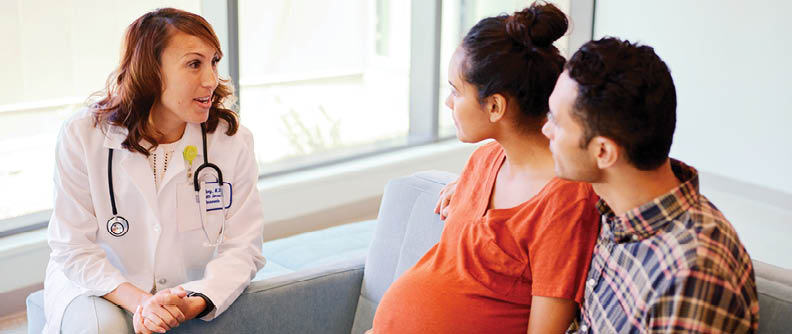Preeclampsia is a complication of pregnancy causing high blood pressure that is diagnosed after week 20 of your pregnancy. The condition can be dangerous to you and your baby. In some cases, it prevents your baby from receiving enough nutrients and oxygen in the blood by affecting the placenta. It can also harm your kidneys, liver, and brain. Preeclampsia means pre-seizure and eclampsia means seizure.
It’s not known why some pregnant people develop preeclampsia. For many, it goes away after giving birth. However, sometimes symptoms last for a while, or they get worse after birth.
You are more likely to get preeclampsia if you had it in an earlier pregnancy. If you already have high blood pressure, diabetes, are overweight, have kidney disease, are having your first baby, twins or more, you could be more at risk. If your mother or sister had preeclampsia during pregnancy, it will also raise your risk.
Signs of preeclampsia
It’s important to know what to look for so you can contact your care team immediately.
Symptoms that you might notice include:
- A headache that won’t go away, even if you take a pain reliever
- Changes in your vision
- Pain in your stomach, particularly in the upper right portion.
- One of the symptoms above with sudden puffiness in your hands, feet, or face
Diagnosing and treating preeclampsia
If your clinician thinks you have preeclampsia, your blood and urine will be tested. People with preeclampsia may have high levels of protein in their urine. Their liver, kidney function and blood counts can also be affected.
If you have it, you might be given medications to help lower your blood pressure. You may be hospitalized before you give birth in order for both you and the baby to be monitored more closely. If your health or your baby’s health is at risk, you will probably be helped to give birth early.
Taking care of yourself after birth
If you had preeclampsia while pregnant, you will need to record your blood pressure at home after you are discharged. That way you can tell your care team if it gets higher again. You can also develop preeclampsia after delivery, which can sometimes require readmission to the hospital. The warning signs can be the same as listed above.
Follow up care is important for preeclampsia. If you had it, you are more at risk for high blood pressure, heart disease, stroke and kidney disease. See your care team regularly to help monitor and prevent these complications. It’s also a good idea to eat a healthy, balanced diet and not smoke. Check with your clinician about any medications you take or plan to take to make sure they are safe.
